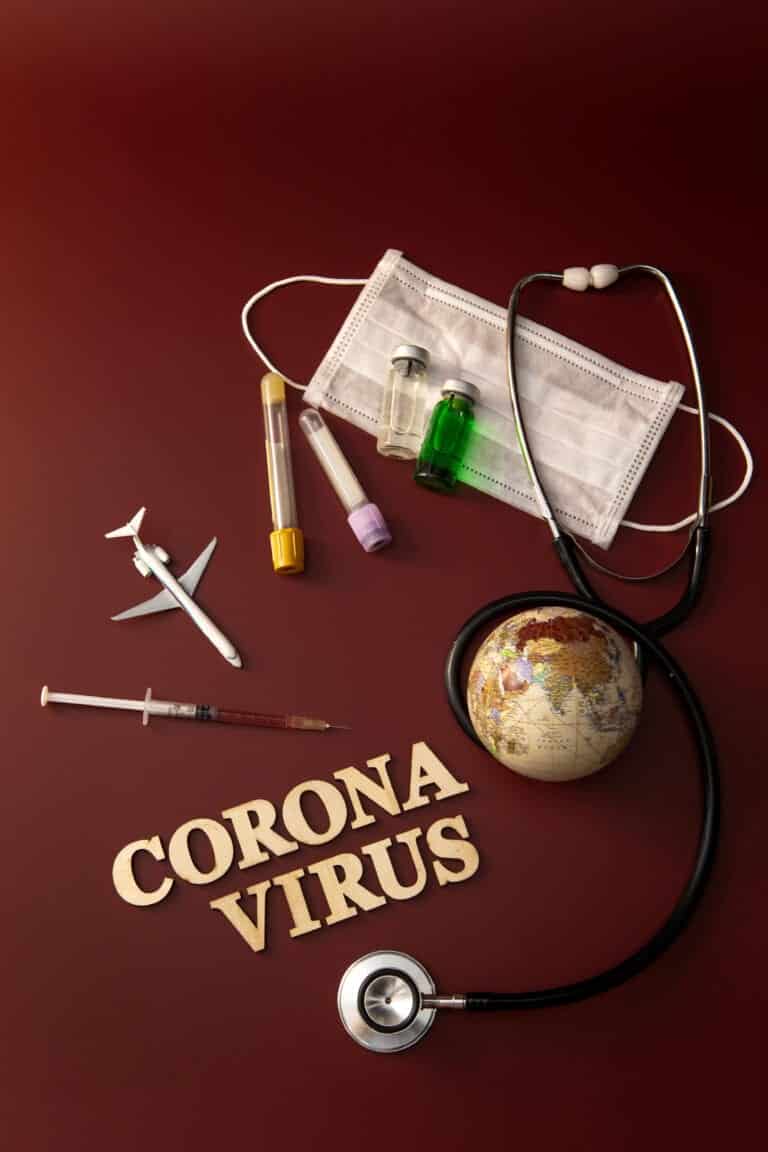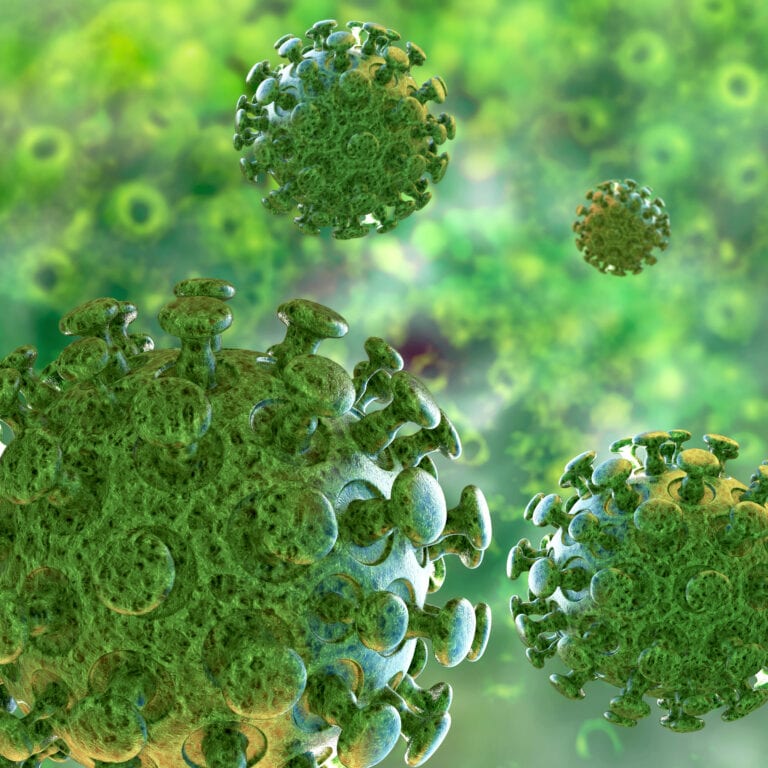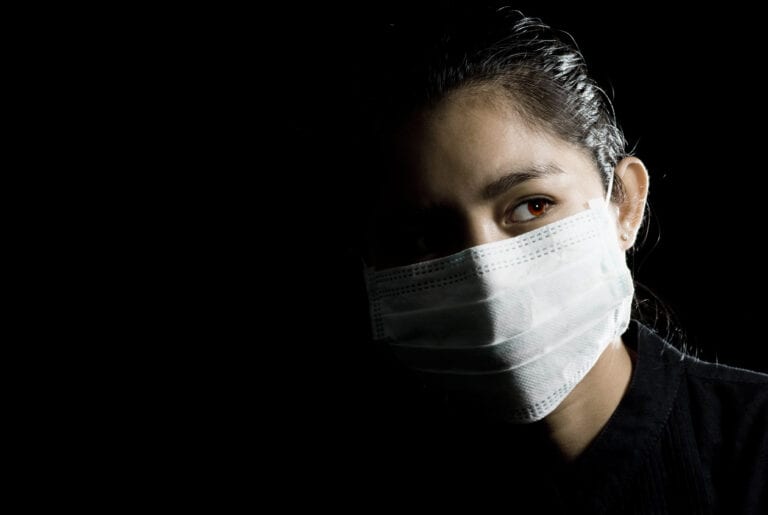
Coronaviruses are a group of viruses that can be transmitted between animals and humans.
These viruses can cause mild ailments such as the common cold as well as more severe infections requiring hospitalization.
The latest outbreak initiated in China has already killed 427 people worldwide, as reported by NBC News on February 4th, 2020. This is alarming since this virus has only recently been identified as 2019-nCoV on January 7th, 2020.
How is this virus spread?
What can you do to protect yourself?

How Does This Virus Spread?
Since this is a new virus, we can only speculate on how it is transmitted. It can be assumed that its spread is similar to other coronaviruses. These viruses are normally spread by close physical contact (usually six feet or less).
Droplet transmission is the most likely culprit.
When an infected patient coughs or sneezes, droplets may be inhaled by others or land in their mouths or noses. It may also be transmitted by touching a surface contaminated with these droplets and then touching the mouth, eyes, or nose, but this is not currently confirmed.
There is no vaccine against this virus at the current time.

Coronavirus Symptoms
The symptoms of the new 2019-nCoV virus are as follows
- Fever over 100.4 degrees
- Muscle aches
- Breathing problems
- Malaise
- Cough
Some people with this virus will show no symptoms but may still spread the virus to others. Some patients may have severe symptoms such as pneumonia, hypoxia, and even death.
The risk of death is higher in those who are immunocompromised, prone to pneumonia, elderly or frail.

Coronavirus Treatment
There is currently no treatment for this virus other than supportive measures. Viruses are difficult to treat with medications. A hospital stay may be necessary to keep the patient comfortable and prevent the condition from deteriorating. In severe cases, being treated in the ICU to support breathing may be necessary.
The FDA has approved the use of hydroxychoroquine (Plaquenil) on 3/30/2020 for the treatment of COVID-19. This drug helps dry secretions in the lungs. One of the main causes of death from this virus is respiratory failure.

Prevention of Coronavirus
The best way to prevent this infection is to stay away from others who have it, wash your hands often, and clean work surfaces used by others frequently. Since it is not possible to know who has the virus, the recommendation is to stay six feet away from everyone. It is also mandated that people in the USA stay home unless they must shop for food or are in critical positions and must go to work. The social distancing guidelines are in effect until April 30, 2020.
If you are not familiar with the correct hand-washing technique, please refer to:
https://www.cdc.gov/handwashing/
- Hand washing is extremely important for optimal health.
- If you don’t need to travel to China, don’t.
- Avoid touching your eyes, nose, or mouth with unwashed hands.
- Cough or sneeze into a tissue and promptly throw the tissue in the trash.
If you are living with someone who you think may be infected with coronavirus, do the following:
- Stay in a separate room and use a different bathroom if possible
- Clean all surfaces the infected person may have had contact with well!
- Wear disposable gloves, a disposable gown, and a face mask when caring for them, be sure to wash your hands thoroughly after providing care.
- Have the infected person wear a mask if possible. If this causes breathing problems, others in the same room as the patient should wear a mask.
- Keep all surfaces very clean, especially ones the patient comes into contact with.

What if I Get Infected?
If you believe you have contracted this virus, see your doctor. This is especially important if you have a high fever or trouble breathing. Do not go to highly populated areas as this may cause the disease to spread. Stay home from work. If you are severely ill, go straight to the emergency room.
The hospital or doctor will test you to confirm you are infected with 2019-nCoV.
It is important to stay away from elderly patients, those who are immuno-compromised, small children and anyone who is susceptible to pneumonia if you suspect you may have this virus.

Protecting yourself against the coronavirus is much the same as avoiding other illnesses.
Stay away from other infected individuals.
Wash your hands often.
Do not travel to destinations where the disease is prevalent.
Wear protective clothing (masks, gowns, gloves) when caring for others with the condition, and keep yourself in good physical condition.
This virus is more dangerous in those with pre-existing respiratory problems, those who are immunocompromised, and the elderly and frail.
If you have any questions, feel free to contact me.
UPDATE
As of 03/30/2020, there have been over 143,000 deaths attributed to this virus in the USA. This has turned out to be much worse than originally thought. The best resource I have been able to find for updated information can be found at the link below.
Stay safe, and always remember to be happy and healthy. Please follow the guidelines issued by the government regarding this virus. Many lives depend on it!

Michael J. Brown, RPh, BCPS, BCPP
Mr. Brown is a Clinical Pharmacist specializing in pharmacotherapy and psychiatry.
Feel free to send Michael a message using this link.



